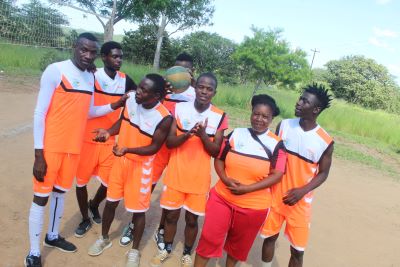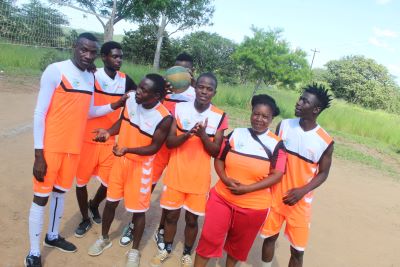
by dapp | Mar 4, 2024 | Blog, News
Development Aid from People to People (DAPP) Zimbabwe is proud to announce a transformative partnership with the Swiss Academy for Development (SA4D) to launch a comprehensive three-year project focused on empowering disadvantaged youth in Shamva District The joint effort, named “Green Paths for You(th) and the Climate,” aims to empower 300 disadvantaged young people aged 15-24 over a 34-month period starting from March 1, 2024.
At the core of our project is the goal of equipping young people with vital skills in sustainable, climate-smart agriculture to improve food security, nutrition, and income stability. Through targeted technical and practical training sessions, participants will gain practical knowledge and hands-on experience in agricultural practices that prioritize environmental sustainability.
Beyond technical skills, we recognize the importance of enhancing employability and life skills among youth. To achieve this, our project integrates innovative sport and play-based sessions that impart agri-entrepreneurship knowledge and general life skills. By combining practical training with ongoing mentorship, coaching, and provision of start-up tools, we aim to empower participants to embark on successful economic ventures.
A central aspect of our project is the commitment to addressing mental health challenges and combating alcohol, drug, and substance abuse among young people. By fostering awareness and providing support, we seek to promote healthier lifestyles and cultivate a more engaged and resilient youth population in Shamva District.
DAPP Zimbabwe is also focused on enhancing our organizational capacities through this partnership. Our dedicated local staff and community members will receive specialized training on SA4D’s sport and play-based approach, enhancing our ability to integrate these methodologies into our broader development activities. This capacity-building initiative will strengthen our impact and visibility, particularly in the field of “Sport for Development.”
As we embark on this journey, we recognize that the project’s impact extends far beyond our direct participants. Planned awareness-raising activities and community engagement events will benefit the broader project area, fostering sustainable and inclusive development across Shamva District. With 300 young people set to benefit directly from our training sessions and community initiatives, DAPP Zimbabwe is excited to be at the forefront of positive change. Together with SA4D, we are committed to building a brighter future for disadvantaged youth and their communities, creating pathways to sustainable employment and improved well-being.
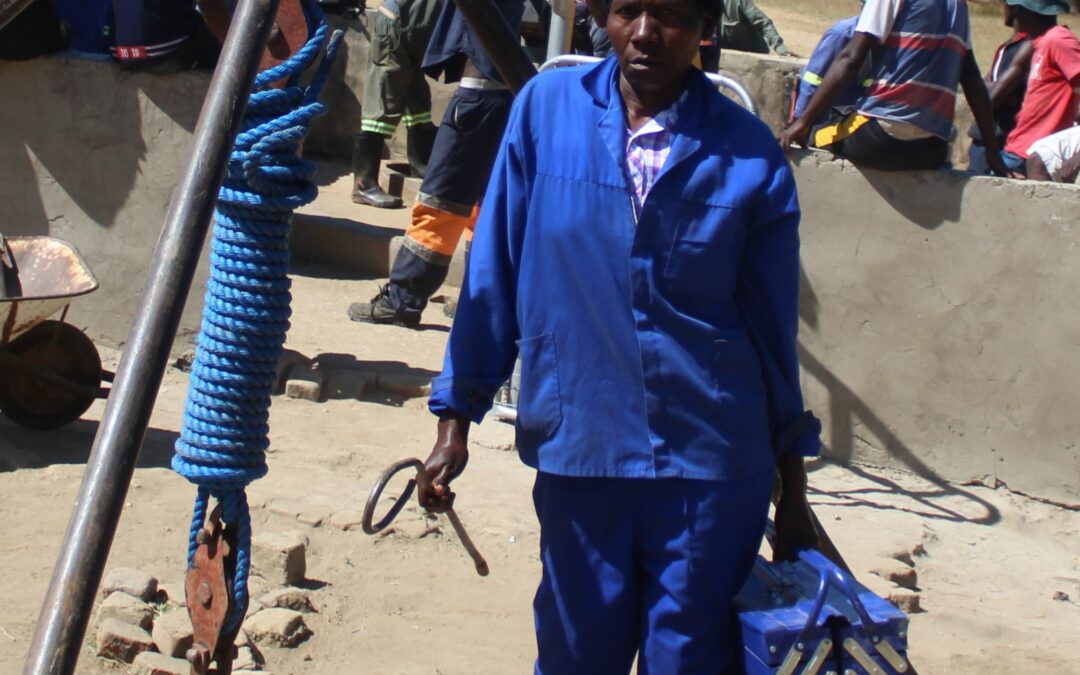
by dapp | Aug 13, 2023 | Blog, News
My name is Tsakani Lause MJao and I am 43 years old woman staying in Shamva. I am a Water Pump Mechanic at Ponesai Vanhu Technical College (PVTC) in Shamva District, Mashonaland Central province. As a woman who was affected by water challenges I decided to take an active role in the Water Sanitation and Hygiene (WASH) programme at the school addressing challenges in easy access to portable water, poor sanitation and hygiene in Shamva district.
The WASH program opened new doors for me to learn Water Pump Management and Borehole Repairing. Together with surrounding community members, we embarked on a 12-day training on water pump management. At first I thought the job was for men since I was the only lady but through theory and practical lessons facilitated by a lady, I discovered that I was equally able to do the job.
My participation in borehole repairing and water pump management inspired other 4 women from the community to join the training. To put into practice my training, I first started by repairing a local borehole which had not been in use for a long time. Borehole repairing is a challenging job because it requires precision and leaves no room for mistakes and the first borehole that I repaired is now working properly, people are even fetching water from it.
I have become a role model to fellow women in Shamva and more women keeps on emulating me. Together with other trained members, we will keep on repairing and managing our surrounding boreholes for community members to have easy access to portable water.
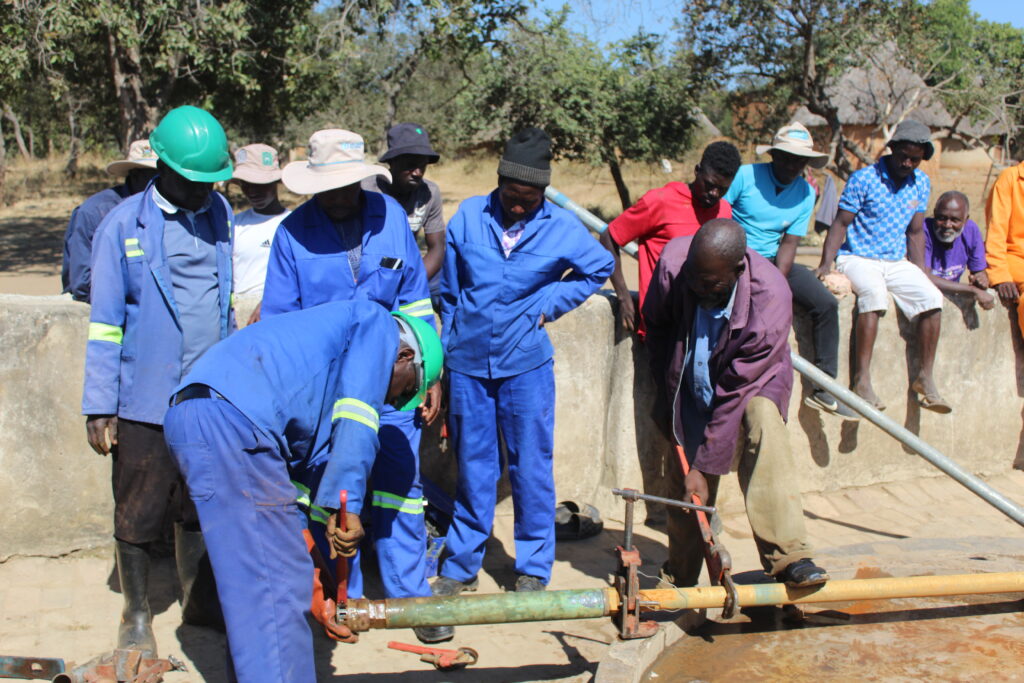
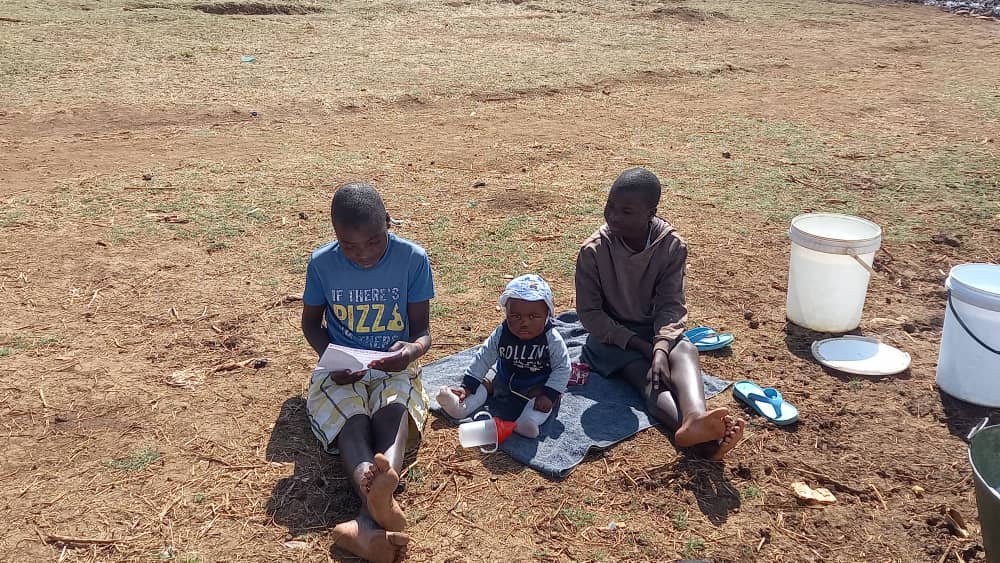
by dapp | Aug 4, 2023 | Blog, News
DAPP Zimbabwe has embarked on community Cholera awareness-raising campaigns to improve health and hygiene practices and prevent the spread of cholera in Chimanimani District.
We are working village health workers to conduct door- to door- cholera awareness in Mhandarume, Chakohwa, and Guhune in wards 2, 3 and 4, says Esnath Gunurai the DAPP project leader. “ The village health workers and project volunteers’ work include sharing messages on cholera transmission, symptoms and prevention techniques.”
DAPP Zimbabwe believes that when the affected people know how to protect themselves from diseases, they take action. “Our messages build on local knowledge and through this, we hope to see positive health-seeking behaviors”
DAPP Zimbabwe is working in collaboration with the Ministry of Health and Child Care in implementing the Anticipatory Action for Cholera Outbreak Prevention in Chimanimani District.
Cholera remains a public health emergency in Zimbabwe where an outbreak of cholera was first recorded on 12 February 2023 with cases on the increase in eight out of the ten provinces of Zimbabwe. Manicaland province remains on high alert after recording over 1 500 cholera infections, the second highest cases in the country.
This project is made possible by funding from the Danish Emergency Relief Fund (DERF) and Civil Society in Development (CISU) through UFF HUMANA
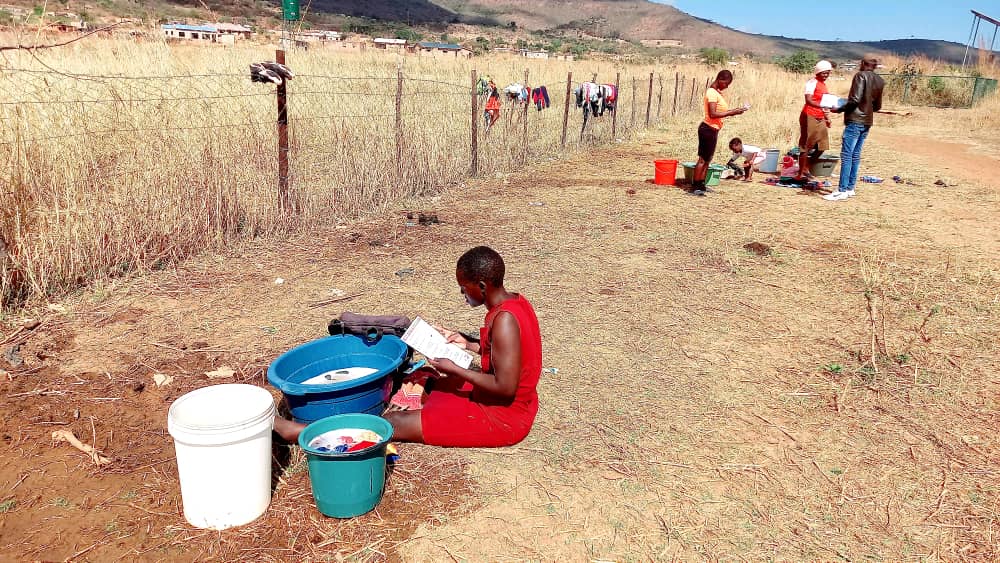

by dapp | Jun 13, 2023 | Blog, News
As Cholera cases continue to rise in the country, Development Aid from People to People (DAPP) Zimbabwe has launched an emergency Cholera response program in Chimanimani District Manicaland province which was recently declared a Cholera Hotspot.
Speaking during program launch in Chimanimani, DAPP Programs Director Ruth Makumbe said the Cholera Outbreak Prevention program is in direct response to the call by government to provide comprehensive cholera response actions to curb the spread of the disease.
“The Anticipatory Action for Cholera Outbreak Prevention program which is supported by The Danish Emergency Relief Fund (DERF) and Civil Society in Development (CISU) through Humana People to People UFF Denmark aims to contribute to the prevention of a broad cholera in Wards 2, 3, and 4 of Chimanimani District.”
“Over the next 6 months DAPP will work closely with the Ministry of Health and Child Care, local health cadres and village action committees to prevent and control cholera transmission and improve access to clean water for domestic use in the targeted wards. We are confident that through this program we will see a reduction in Cholera related infections and deaths.”
Speaking at the same occasion the Chimanimani District Medical officer, Donatas Mugari called for a multi-sectorial approach to stop Chorela in its tracks. “Manicaland is a Cholera hotspot and Cholera cases are on the increase. We need more players to come in to complement the government in efforts to curb the spread of this disease.”
According to the World Health Organization, cholera is an acute waterborne diarrheal disease that is preventable if people have access to safe water and sanitation and practice good hygiene but can kill within hours if left untreated.
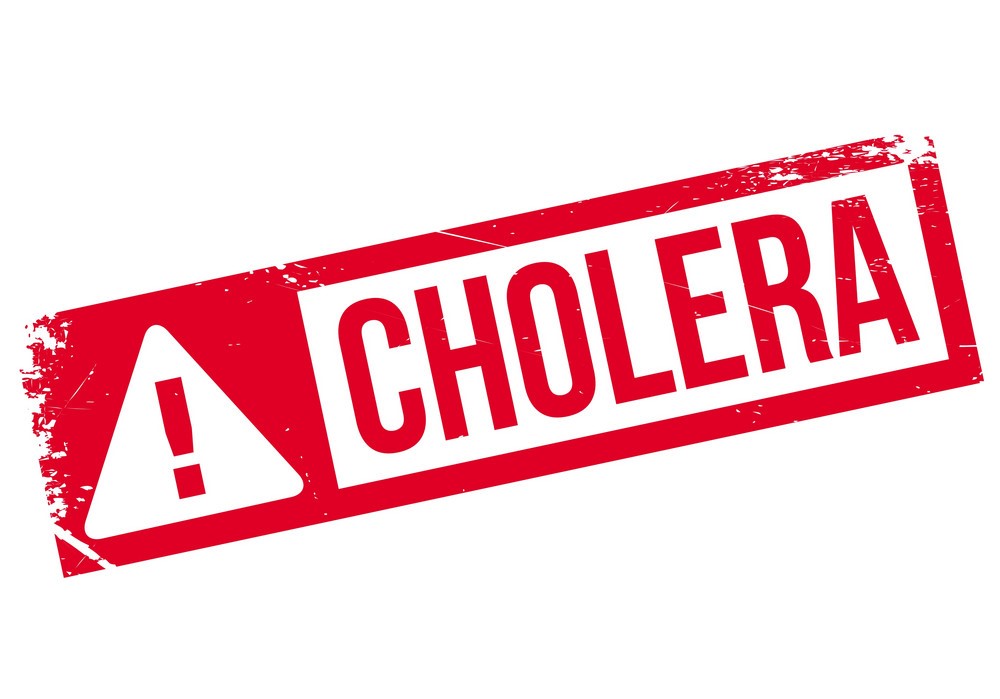
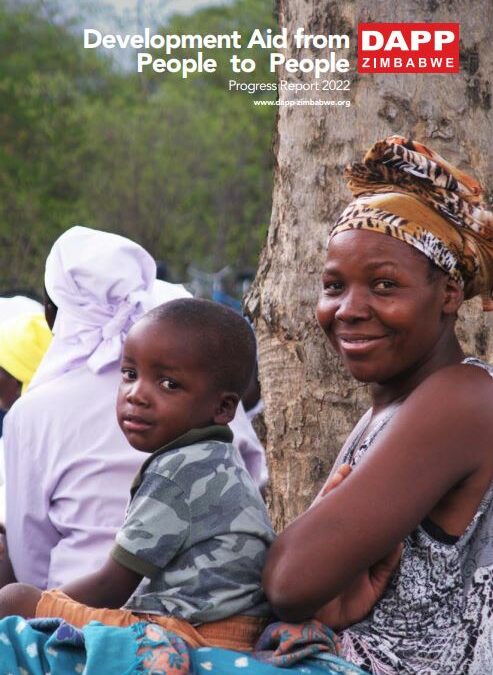
by dapp | May 16, 2023 | Blog, News
We are excited and proud to release our Development Aid from People to People in Zimbabwe Progress Report 2022.
The report provides an insight into the work of DAPP Zimbabwe over the past year, including our shared commitment to protect the planet, build communities and support people by connecting them with others, unleashing their potential for positive change and action.
We take this opportunity to extend a big THANK YOU to all our partners, for your support.
DAPP Zimbabwe Annual Report 2022
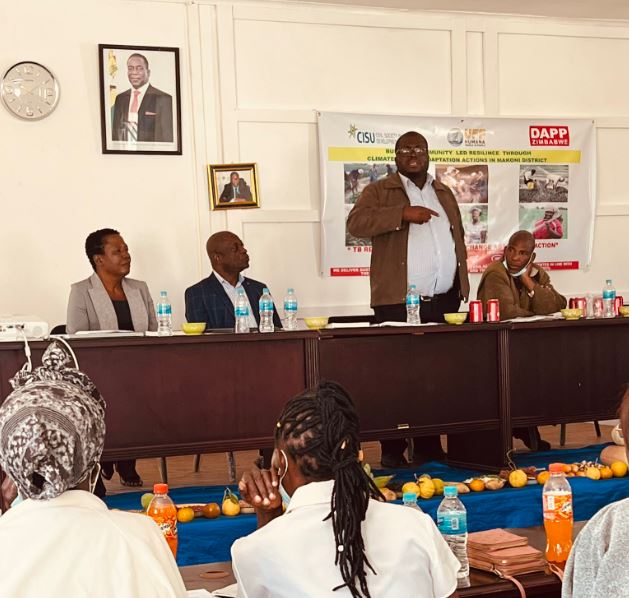
by dapp | May 12, 2023 | Blog, News
DAPP Zimbabwe has launched the Building Community-led Resilience through Climate Change Adaptation Actions in Makoni District, funded by CISU through UFF-Humana. The intervention aims to build resilience among 200 smallholder farmers particularly women and those affected with TB and /or HIV from wards 12 and 16 in Makoni District.
Speaking during the official launch at Makoni Rural District town hall, DAPP Zimbabwe Country Director Luckson Soda said the new actions build on the current TC TB project and will increase household incomes, food and nutrition security.
“This project will promote the adoption of climate-smart agricultural techniques through asset creation of gardens, installation of solar powered borehole and drip irrigation technology and rearing of small livestock production among the 200 smallholder farmers”.
Luckson Soda added that the initiatives align with the National Development Strategy 1, which mainstreams climate change at community level as well as contributes towards SDG 13-on climate action.
Speaking at the same occasion, DAPP Zimbabwe Programmes Director Ruth Makumbe stated that DAPP’s interventions are possible because the organization works with all local leaders and community members.
“We identify ourselves with people, live with the people, together we identify problems and become part of the solution together. We have dedicated and devoted cadres represented here as a People to People organization, ready to work with communities and their leadership, government, and other key stakeholders to transform people’s lives”.
Still, at the same event, guest of honor Makoni District Development Coordinator (DDC) Edwin Mashindi applauded DAPP Zimbabwe for complementing the government’s efforts in attaining Vision 2030 on food and nutrition security and improved household economies.
“I am happy to see a project that we worked together from proposal development to today coming to fruition. These actions anchor on agriculture which is a key driver of Zimbabwe’s Vision 2030 of building resilience to climate shocks by smallholder farmers. As the DDC we support initiatives that align with the National Development Strategy 1(NDS1) which mainstream climate change at community level and these actions are one of them”.
Given the platform to speak during the launch, the beneficiaries welcomed the new actions and promised to work together with DAPP, relevant government departments, public and private sectors for improved livelihoods.


